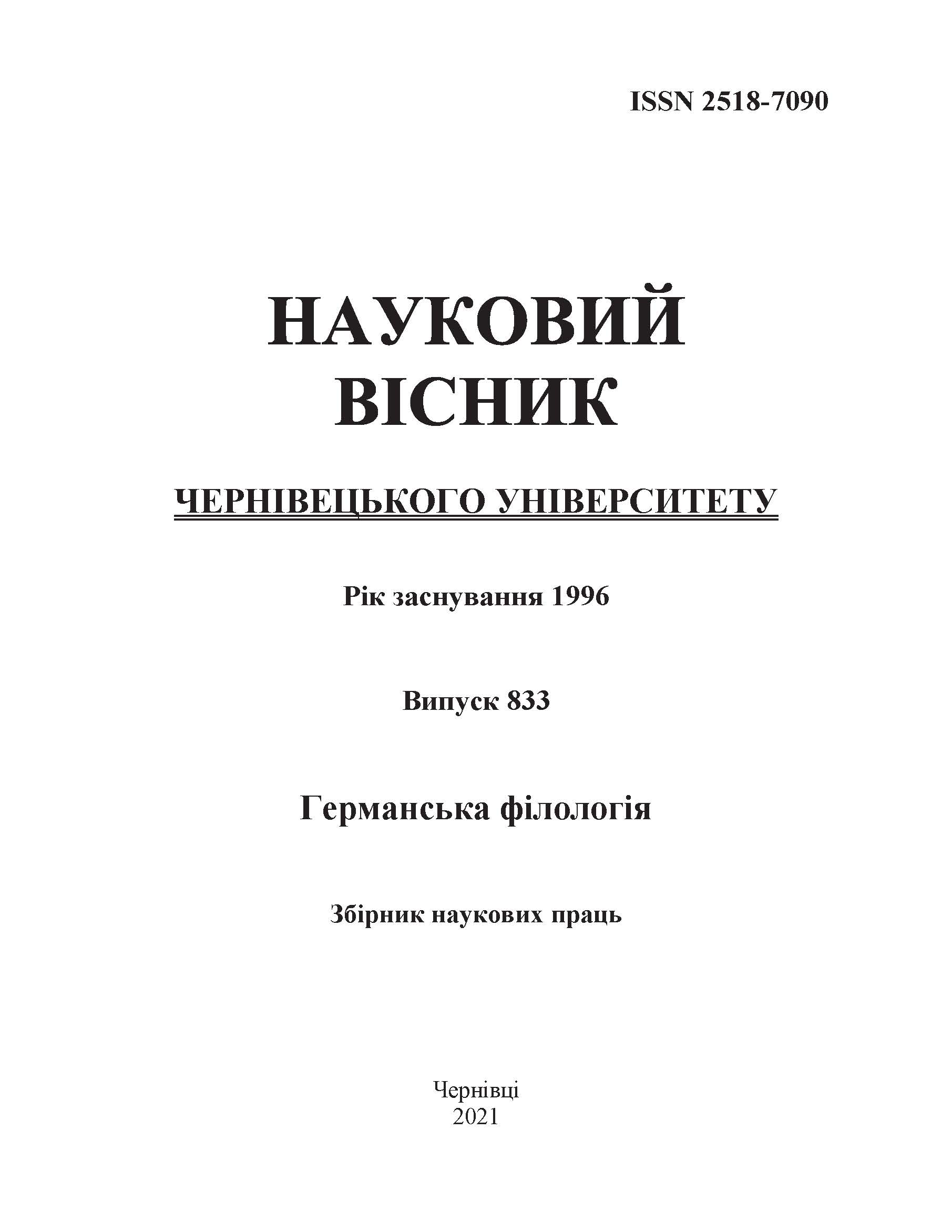СТИЛІСТИЧНІ ЗАСОБИ ПРИ ПЕРЕДАЧІ ЕМОЦІЙ ПЕРСОНАЖІВ ТА ЇХНІЙ ПЕРЕКЛАД
DOI:
https://doi.org/10.31861/gph2021.833.12-18Ключові слова:
стилістичний прийом, перекладацька трансформація, комунікативна інтенція, еквівалентність, адекватність, емотивністьАнотація
У статті викладені результати дослідження, яке дало змогу виявити найпоширеніші стилістичні прийоми, що вживалися у двох художніх творах американського письменника Д. Кіза „Квіти для Елджернона‟ (2006) та „Таємнича історія Біллі Міллігана‟ (1995), а також проаналізувати закономірності українських перекладів емоційно забарвлених фрагментів тексту, де ці стилістичні прийоми застосовувалися. Емотивний компонент мовної семантики та стилістичні прийоми досить складно передати у перекладі та буквальний переклад може ускладнити розуміння тексту оригіналу і стилістичне забарвлення авторського тексту може зникнути при такому перекладі. Помічено, що, оскільки стилістичні прийоми є невід’ємним елементом композиції художнього твору, формують його емоційне тло та допомагають у здійсненні прагматичного впливу на реципієнта, перекладачам Віктору Шовкуну та Олені Стусенко довелося знаходити влучні відповідники та застосувати перекладацькі трансформації, адже переклад повинен повноцінно замінювати оригінальний текст, оскільки реципієнт сприймає перекладений текст як тотожний оригінальному. Дослідження засвідчує, що перекладачі найчастіше вдавалися до лексичних (конкретизація, генералізація та модуляція), лексико-граматичних (вилучення та додавання) та граматичних (вербалізація та номіналізація) перекладацьких трансформацій, уникаючи дослівного перекладу. Встановлено та за допомогою зіставного методу підтверджено, що в українському перекладі використовується більше стилістичних прийомів, ніж у англійському тексті оригіналу. Найбільш широко вживаними стилістичними прийомами зафіксовані метафори, епітети, порівняння та фразеологізми.






